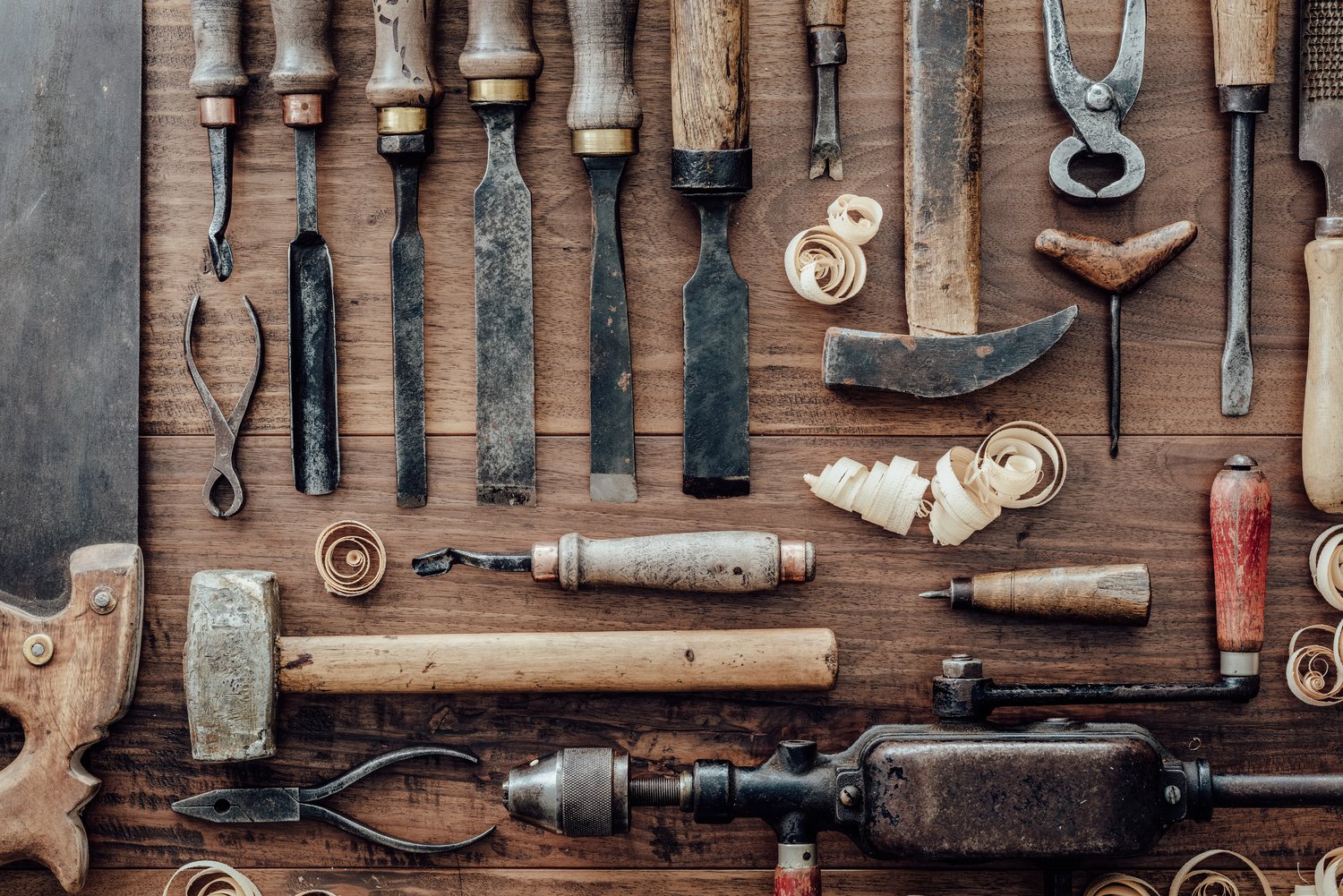Understanding the basics of woodworking tools
Woodworking is a rewarding craft that requires the right tools for success. Every woodworker, from novice to expert, needs a core set of implements. These include measuring tools, cutting tools, and shaping tools. Measuring tools, such as tape measures and squares, ensure accuracy in your projects. Cutting tools, like saws and chisels, allow you to shape wood precisely. Shaping tools, including planes and sanders, help refine your work. Each tool serves a specific purpose in the woodworking process. Understanding these basics will help you choose the right tools for your projects.
The quality of your tools can significantly impact your work. High-quality woodworking tools often last longer and perform better. They can make your work easier and more enjoyable. However, quality tools often come with a higher price tag. As a beginner, you don’t need to buy the most expensive tools. Start with mid-range tools and upgrade as your skills improve. Many woodworkers find that a set of 10-15 core tools is sufficient for most projects. These core tools form the foundation of a woodworker’s toolkit.
Safety is paramount when working with woodworking tools. Always wear appropriate safety gear, including safety glasses and hearing protection. Keep your tools sharp and well-maintained to prevent accidents. A dull tool can be more dangerous than a sharp one. Clean your tools after each use to prolong their life. Store them properly to prevent damage and rust. By taking care of your tools, you ensure they’ll be ready when you need them. Regular maintenance also helps you spot potential issues before they become problems.
Essential woodworking tools for every workshop
Every woodworker needs a reliable set of hand tools. These include a hammer, screwdrivers, and a set of chisels. A good hammer should weigh between 16 and 20 ounces. Screwdrivers come in various sizes, but a set of 6-8 will cover most needs. Chisels are essential for precise cuts and joinery. A set of four chisels (1/4″, 1/2″, 3/4″, and 1″) will handle most tasks. These hand tools form the backbone of any woodworking toolkit. They’re versatile and can be used in a wide range of projects.
Power tools can significantly speed up your work. A drill is perhaps the most versatile power tool. It can drill holes, drive screws, and even sand with the right attachments. A circular saw is another essential power tool. It allows you to make straight cuts quickly and accurately. For more precise cuts, a jigsaw is invaluable. These three power tools can handle about 80% of cutting tasks in most projects. As you progress, you might consider adding a table saw or a router to your collection.
Measuring and marking tools are crucial for accurate woodworking. A good tape measure should be at least 25 feet long. A combination square helps you mark 45 and 90-degree angles. A marking gauge is useful for scribing lines parallel to an edge. woodworking tools https://onninen.pl/en/products/Tools-and-OHS/Woodworking-tools also include clamps, which are essential for holding pieces together while glue dries or during assembly. A set of four 24-inch bar clamps is a good starting point. These tools ensure your projects are precise and well-constructed. Without accurate measurements, even the best craftsmanship can result in poor-fitting pieces.
Choosing the right woodworking tools for your projects
Selecting the right tools depends on the type of projects you plan to undertake. For small, detailed work, you’ll need precision tools like carving knives and small chisels. Larger projects might require more robust tools like planers and jointers. Consider the materials you’ll be working with as well. Softwoods require different tools than hardwoods. Some tools, like Japanese pull saws, excel at cutting hardwoods. Others, like Western push saws, are better suited for softwoods. Understanding these differences can help you choose the most appropriate tools for your work.
Budget is often a key factor in tool selection. High-end tools can cost hundreds or even thousands of dollars. However, many affordable options provide excellent performance. Look for tools from reputable brands that offer good warranties. Sometimes, buying used tools can be a cost-effective option. Many experienced woodworkers sell their old tools when upgrading. This can be a great way to get quality tools at a lower price. Remember, it’s often better to buy fewer, higher-quality tools than many cheap ones.
As you develop your skills, you may find you need specialized tools. These might include a lathe for turning wood, or a bandsaw for curved cuts. A router table can greatly expand your woodworking capabilities. It allows for precise edge treatments and joinery. A dust collection system, while not a woodworking tool per se, is crucial for workshop safety. It helps keep your workspace clean and your lungs healthy. As you progress in your woodworking journey, your tool collection will likely grow and evolve. Always prioritize safety and quality when adding new tools to your workshop.





